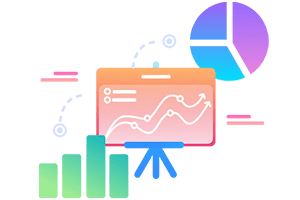As an IT professional, you already face challenges in a dynamic environment. It is also among the most valuable skills sought after in the market.
But let’s not forget the not-so-glamorous side: taxes. As an IT pro, handling the tax landscape can feel like troubleshooting a complex system.
But fear not, because this blog is here to help you with all the deductions you can claim and help you maximise your refund.
Understanding Tax-Deductible Expenses
Tax season might seem daunting, but claiming work-related deductions can significantly reduce your tax burden. However, not all expenses qualify. Here’s the key:
Directly work-related: The expense must be essential to your IT job, not a personal expense in disguise.
Paid by you: If your employer reimburses you, it generally cannot be deducted.
Supported by records: Keep receipts, invoices, or bank statements as proof of your work-related expenses. Digital copies are acceptable as long as they clearly show the required details.
Tech-Specific Deductible Expenses
IT professionals often incur unique work-related expenses. This section highlights some common deductible expenses in this category:
Tools and Equipment: You can deduct up to $300 worth of essential equipment you purchase yourself, like laptops, software licences, and specialised tools used solely for work. Remember, the expense must be work-related, not for personal use like gaming laptops.
Technical Journals and Subscriptions: Subscriptions to relevant technical journals, online resources, and software directly related to your work are deductible. For example, online security subscriptions for cybersecurity or cloud computing platform subscriptions for DevOps engineers.
Self-Education Costs: Expenses for relevant courses, workshops, and seminars that improve your IT skills and career advancement are deductible. This could include cloud computing certifications for network administrators or coding boot camps for software developers.
Union and Professional Association Fees: Membership fees for relevant IT unions and professional associations are deductible.
- Conferences and Training: Costs associated with attending industry conferences, training events, and workshops directly related to your work are deductible. This could include travel, accommodation, and registration fees.
General Deductible Expenses
IT professionals may also incur general work-related expenses that are deductible. Here are some common examples:
Car Expenses: If you use your car for work-related travel, keep a logbook or use the cents per kilometre method to claim a portion of your car expenses. Remember, commuting to your regular workplace is generally not deductible.
Work-Related Travel: Flights, taxis, trains, and accommodation (including meals) incurred for work purposes, like attending conferences or client meetings, are deductible. Remember, personal travel or travel reimbursed by your employer is not deductible.
Phone and Internet: Deduct the work-related portion of your phone bill used for business calls, research, or coordinating projects. Similarly, a portion of your internet bill used for work purposes is deductible.
Home Office Expenses: If you have a dedicated workspace at home used solely for work, you can deduct a portion of its costs, including furniture and equipment. Remember, the space must be dedicated to work and not used for personal purposes.
First Aid Training: If you’re a designated first aid person and need training to assist in emergencies, the cost of the training is deductible.
What are The Non-Deductible Expenses?
It’s important to remember that not all expenses are tax-deductible. Here are some common non-deductible expenses for IT professionals:
Regular Clothing: Even if worn only at work, everyday clothes like black pants or white shirts are not deductible.
Personal Meals: Daily meals, even if you receive an allowance from your employer, are not deductible.
Commuting: Travel between your home and regular workplace is not deductible.
Market Research Meals: Enjoying a meal at a restaurant for “research” is not considered a work-related expense.
Personal Subscriptions: Subscriptions to non-work-related publications or online services are not deductible.
Record-Keeping
Accurate record-keeping is essential for claiming your deductions. Here’s what to keep and for how long:
Maintain records: Throughout the year, keep receipts, invoices, or bank statements for all your deductible expenses. Digital copies are acceptable as long as they clearly show the required details.
Record-keeping duration: You must keep your records for five years after the year you lodge your tax return.
Tips For IT Professionals to Maximise Their Deductions
Following are some tips which can help you maximise deductions:
Seek professional advice: While this guide provides general information, consulting a registered tax agent is recommended for personalised advice tailored to your specific circumstances.
Stay informed: Tax laws and regulations can change periodically, so staying updated on any changes is crucial to ensure you’re claiming your rightful deductions.
Maximise your refund: By understanding and claiming eligible deductions, you can significantly reduce your tax burden and keep more of your hard-earned money.
Conclusion
Mastering the IT field requires constant learning and investment. When you talk of tax deductions, you must consult a registered tax agent who can offer you personalised advice for maximising your refund. To help you with that, you can rely on the tax agents at KPG Taxation! They have experts who are well aware of the latest tax amendments and ensure you potentially increase deductions.





